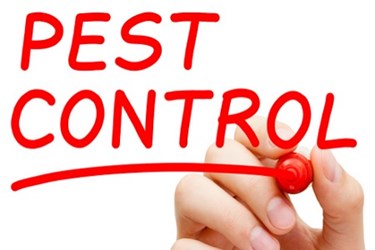FSMA Compliance Will Target Pest Control To Prevent Food Contamination
By Laurel Maloy, contributing writer, Food Online

Taking a proactive approach, the Food Safety Modernization Act calls for implementing hands-on measures to prevent food contamination. Rigorous pest control management is one of these proactive primary lines of defense that prevents foodborne illness and contamination
The excitement generated around the Food Safety Modernization Act (FSMA) promises to be a win-win for the consumer, as well as for all parties in the food supply chain. With rules more clearly defined and federally mandated, food processors will know exactly what is expected of them. Concurrently, the FDA will be endowed with the ability to inspect and issue fines and penalties for noncompliance.
Plants that have already been audited by major third-party auditors and the Global Food Safety Initiative (GFSI) standards will most likely be in compliance. Smaller, regional food processing plants that have not already implemented a formal food safety program will see the largest impact. Facilities will be required by FSMA to prepare and implement a written plan identifying possible hazards and specifying the steps that will be taken to ensure food safety and monitoring. Food processors will also be required to maintain thorough records, including those actions taken to correct potential or ongoing threats to food safety.
Learn how to survive an FDA audit
Integrated Pest Management (IPM) will be a critical component of any comprehensive food safety plan. The largest food recall in U.S. history occurred in 2009, the result of Salmonella traced back to Peanut Corporation of America (PCA) in Blakely, GA. The Salmonella outbreak killed eight and affected 19,000. Inspectors found rats scampering throughout the facility, a copious amount of rat feces, and a leaky roof capable of nurturing noxious germs. This massive recall, and subsequent plant closing, helped spur the push for federally mandated regulation, which has taken the form of FSMA.
IPM combines pest management, sanitation, and maintenance practices to prevent food contamination from rodents and insects. FSMA requires hazard analysis, necessitating facilities to identify and evaluate known or anticipated hazards. Comprehensive inspections and risk evaluation of a proactive IPM program should assess facility design, structural issues, and other conditions conducive to pest infestation. Additionally, FSMA requires preventive controls in order to prevent or significantly minimize food safety hazards. This compels processors to examine the use of sealants to prevent egress, the elimination of potential pest enticements, sanitation practices, and non-chemical options. Finally, FSMA requires corrective actions be taken, recorded and reported, as well as thoroughly documented monitoring schedules and procedures. It also necessitates reassessment of each facility’s food safety plan at least once every three years.
A recent agreement between the FDA, The Center for Environmental Health (CEH), and the Center for Food Safety (CFS) has resulted in a staggered schedule for implementation of FSMA. Originally set for full implementation in June 2015, the new deadlines are as follows:
- Aug 30, 2015 – Preventive controls for human and animal food
- Oct 31, 2015 – Produce safety and imported food and foreign suppliers
- Mar 31, 2016 – Food Transportation
- May 31, 2016 – Intentional adulteration
Facilities, processors, and transporters should take note of the Aug 30, 2015 date. Putting an effective pest management plan in place now will ensure your efforts are consistent with what FSMA will demand. The standards, as time progresses, may become more stringent, but a well-devised and well-executed IPM plan now may prevent a costly and humiliating recall later.
